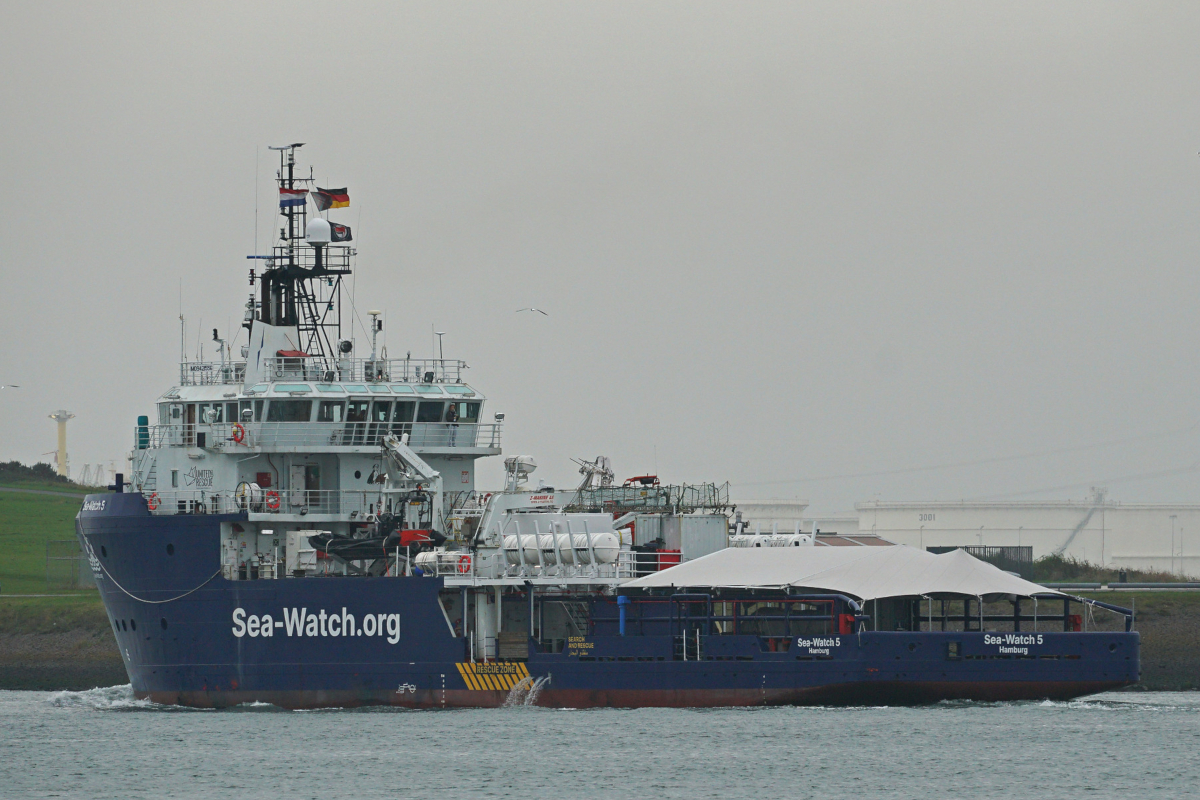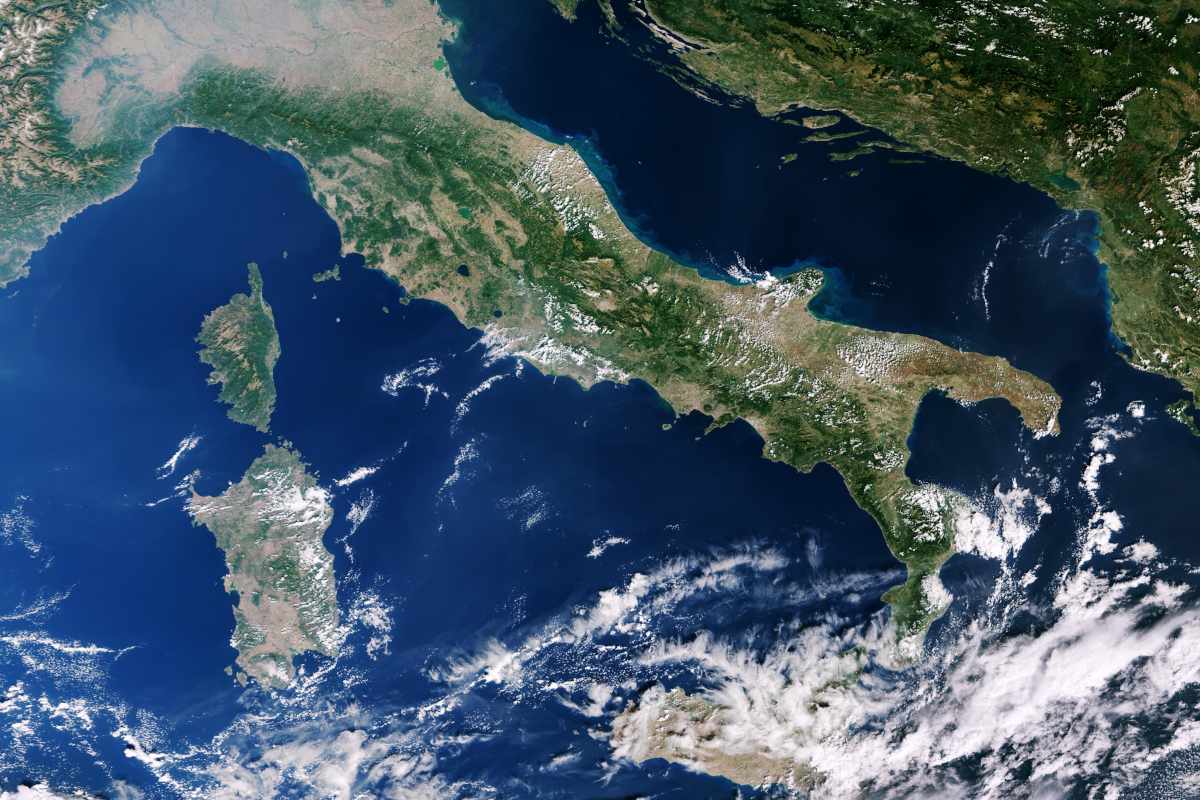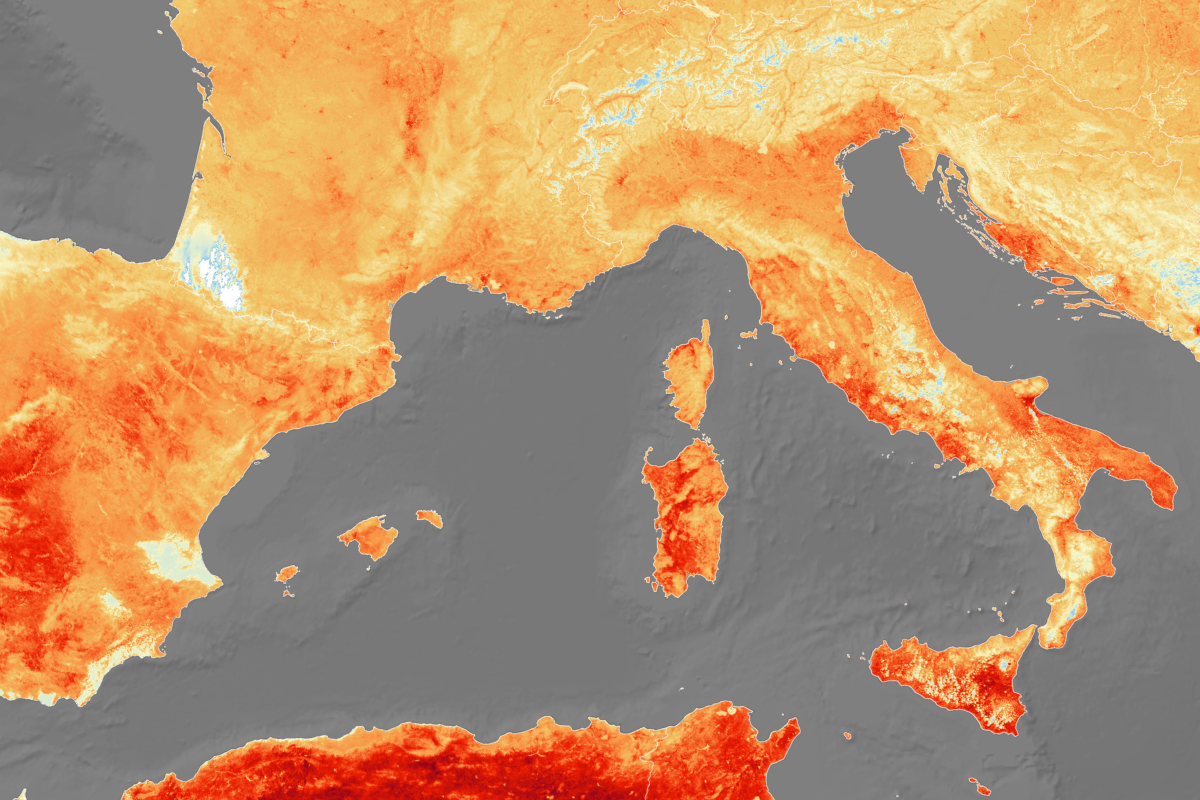EU mulls intelligence-gathering obligations for search and rescue operations
Topic
Country/Region
02 November 2023
Draft European Commission proposals would impose intelligence-gathering requirements on any ships that engage in search and rescue (SAR) operations at sea, in the name of "addressing the needs of those onboard as well as facilitating a smooth disembarkation and first reception". An employee of a search and rescue organisation has warned that "civil assets used in sea rescue operations should not be tasked with any law enforcement duty."
Support our work: become a Friend of Statewatch from as little as £1/€1 per month.

Image: kees torn, CC BY-SA 2.0
The document (pdf) was produced "for an exchange of views on the type of information that shipmasters may exchange with rescued people following SAR incidents," by officials within the Migration Management Response unit of the Commisson's Directorate-General for Migration and Home Affairs (DG HOME).
It aims "to facilitate a discussion among Member States in order to achieve a better overview of what type of information and with what timing might be usefully collected, which is of indicative nature and does not prevent the responsible coastal authorities from asking for further or less elements."
It states that "there appears to be no common definition of information that shipmasters of private vessels, irrespective of the way in which they come to be engaged in a rescue activity, can collect on board nor uniform practice in this respect."
Ensuring the standardised collection of information "can contribute to addressing the needs of those onboard as well as facilitating a smooth disembarkation and first reception in the coastal State where the port of safety is determined by the responsible authorities," argues the note.
The Commission document comes after the introduction of the Piantedosi decree in Italy, which imposed new information-gathering requirements on vessels engaged in SAR operations and which has been condemned as part of a further crackdown on their activities.
The proposals are likely to be seen as a further attempt to subordinate sea rescue and the law of the sea to the EU's policing objectives and the fight against irregularised migration.
Existing standards
Amongst the proposals for the types of information to be gathered by SAR crew and shared with state authorities are many that are already routinely collected, such as the location of the vessel in distress; a description of the vessel; information on the people rescued (nationality, gender, minors); and a description of the rescue process.
Many of the DG HOME proposals also reflect recommendations set out in the International Aeronautical and Maritime Search and Rescue (IAMSAR) Manual, produced by two UN agencies, the International Maritime Organisation and International Civil Aviation Organisation.
Intelligence-gathering?
Beyond these proposals, however, the note suggests that ships engaged in SAR operations should gather various other types of information:
- "Information about the crew of the vessel and their actions prior to the distress event"
- "If applicable, accounts on the involvement of smugglers/traffickers and their actions prior to and during the journey"
- "If applicable, any potential encounters with other entities during the journey, and whether they contributed to the distress situation"
- "Whether the persons on board possess relevant identification and travel documents that may be relevant upon disembarkation"
- "Whether the person plans to apply for asylum in the country where he/she will be disembarked"
These go beyond those set out in the IAMSAR Manual, which makes recommendations geared towards gathering information "for the success of the SAR operation" and that "may be of great value for future SAR operations."
Alberto Mallardo of the search and rescue organisation Sea-Watch told Statewatch that requirements to gather this kind of information may lead to rescue missions increasingly being forced to act as policing operations:
“We consider it crucial to acknowledge that civil assets used in sea rescue operations should not be tasked with any law enforcement duty. This should only be carried out once the safety of the rescued individuals has been ensured, specifically after completing the rescue operation and disembarking the shipwreck individuals at a designated place of safety (POS). Therefore, expecting our team to be directly involved in collecting evidence for investigative purposes would deviate from our main mission. Our main focus should be on efficiently and effectively fulfilling our objective of searching for and rescuing people at sea and bringing them to safety”.
The European Commission has not responded to a request for comment on the document and its content.
Statewatch revealed earlier this year that the Commission is aiming for "standardisation/convergence of registration and certification rules on private vessels carrying out SAR [search and rescue] as their predominant activity," which could be used to hinder the activities of search and rescue organisations.
Documentation
- European Commission - DG Migration and Home Affairs (DG HOME) - Migration Management Response, Background note for an exchange of views on the type of information that shipmasters may exchange with rescued people following SAR incidents (pdf)
Our work is only possible with your support.
Become a Friend of Statewatch from as little as £1/€1 per month.
Further reading

Urgent warning: more deaths at sea, NGO ships blocked
A joint statement signed by 56 organisations, including Statewatch, calls for European states to stop obstructing and hindering civil search and rescue missions in the Mediterranean Sea.

Search and rescue in the Mediterranean: German response to Commission roadmap
Ahead of the upcoming meeting of the European Commission's Contact Group on Search and Rescue on 16 June, the German authorities have issued a response to the Commission's draft roadmap that was published by Statewatch last month. The response is published here.

European Commission wants common rules on "registration and certification" for Mediterranean search and rescue organisations
A "Draft Roadmap towards a 'European Framework for Operational Cooperation on Search and Rescue in the Mediterranean Sea'," obtained by Statewatch and published here, indicates that the European Commission is aiming for "standardisation/convergence of registration and certification rules on private vessels carrying out SAR [search and rescue] as their predominant activity." This could be used to hinder the activities of search and rescue organisations.
Spotted an error? If you've spotted a problem with this page, just click once to let us know.
